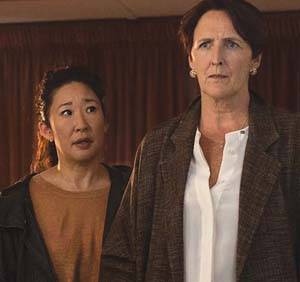Ethics is a big subject, of which I know little; but I do know something about responsibility. When I write a story I'm conscious of several kinds: primarily a responsibility to the story itself, in that I have to (I feel I ought to; I have a duty to) find out what it is, and then tell it as clearly as I can. That's the responsibility whose rank is easiest to discern: it's the most important, without question. How do I know that? And where does the responsibility originate? I don't know; but I'll come back to this later. After that come other kinds, but it's not so easy to put them in order of urgency, or nobility, or anything else. There's a responsibility to the audience, for example. I don't consider myself a writer "for children", but I know that children do read my books. On the other hand, so do adults. Knowing this lets me think of the audience as a mixed, self-selected, democratic sort of group who have gathered to hear me tell a story without being put off by signs that say "Children only" or "Men keep out" or "Stupid people won't understand this"; whoever wants to stay and follow the story is welcome. The consequence of that is that if I want them to stay, I have to tell a story that's interesting enough to please them all, though perhaps in different ways. What's more, if I don't want one part of the audience (the grown-ups) to take another part (the children) by the hand and march them firmly away, I have to think carefully about the sex and violence business. It's not that we can't deal with sex or violence in stories that children read, but that when we do, we need to remember that they work most effectively when they occur in a moral context that shows that actions have consequences.
A related responsibility, perhaps, involves hope and despair. Knowing that some of our readers are young, should we leave them with a vision of universal bleakness, if our story points that way? Some very good writers of the sort of books that children read think that they should end their stories with a glimpse of hope, however fragile; it's too cruel otherwise. My guide here is Samuel Johnson: "The only end of writing is to enable the readers better to enjoy life, or better to endure it."
Another responsibility the storyteller has to bear in mind is a social one, the sort that every breadwinner has to remember: we have to earn a living. We have to pay the mortgage and support our families and save up for our old age. It's our responsibility to tell the sort of stories that please enough people to enable us to do that; or alternatively, if we want to tell the sort of stories that very few people like (and of course we have every right to do that), then we must have some other job to live on, and not expect bottomless support from other people. This isn't an argument against public subsidy of the arts in general: opera, for example, has always cost far more money than it can earn, and has always been underwritten by princes or municipalities, and quite right too. But telling stories doesn't involve that sort of expense, and in any case, when we start writing, we're better off if we do have to work at something else: it gives us something to write about. We belong in the world, not out of it.
The world in its social and political aspects also brings to mind another responsibility, one which has to do with the medium in which many stories are told: I mean language. Once we become conscious of language, we can't pretend to be innocent about it; we have a responsibility for looking after it. This is the sort of looking-after-the-tools that any good craftsman tries to instil in an apprentice – keeping the blades sharp, oiling the bearings, cleaning the filters. Those of us who use language to tell stories should continually make sure of the meaning of words by looking them up in a good dictionary, should become attuned to our own utterances and realise when we're using expressions that are second-hand or blurred through too much use, should use language to illuminate, reveal and clarify rather than obscure, mislead and conceal. The language should be safe in our hands – safer than it is in those of politicians, for example; at the least, people should be able to say that we haven't left it any poorer, or clumsier, or less precise.
The social and political aspects of language-responsibility are important, and fairly easy for most people to understand. Not quite so easy – perhaps not so important – is the artistic aspect, but it's still worth taking seriously. You shouldn't neglect the technique, is what it amounts to. If we're rhyming, let's rhyme properly, and get the metre right while we're about it; if we're telling a detective story, we shouldn't cheat by withholding information from the reader; if we're writing a film script set in the past, let's make sure that the dialogue is at least as authentically in period as the costumes.
What else is there?
Plenty, no doubt. But I still haven't examined that original should, the one about responsibility to the story itself. It's difficult to get this clear, because as I write about it I find myself drifting into a sort of Platonism, as if the story is there already like a pure form in some gaseous elsewhere, and what I do when I tell it is bring it down into the sordid and murky realms of actual utterance, to find it inevitably corrupted by compromise and failure. It does feel a bit like that; but the problem is that I passionately dislike that sort of Platonism. I feel with every atom of my body that it's untrue and wrong. There ain't no elsewhere. So between feeling this and feeling that, I don't know what I think. All I can say, from my own experience, is that the should comes as early as the first little drifting mote of idea-sruff, the smallest seed of a story. If I can feel it's alive, then there's a should attached to it – just as there'd be a should attached to a baby found abandoned in a doorway. Look after it, is what it means.
But where that should comes from, I haven't the faintest idea. Perhaps a philosopher would be able to say, but I'm a storyteller, and my responsibility ends here.

